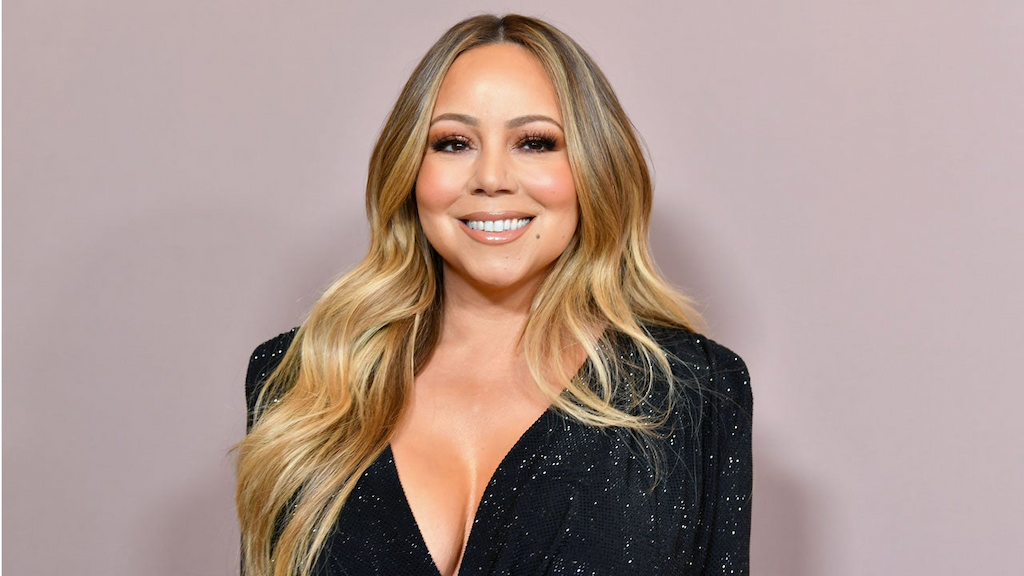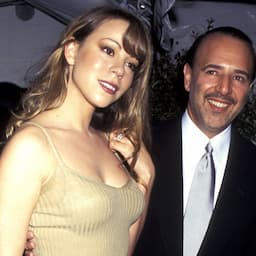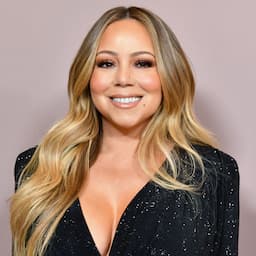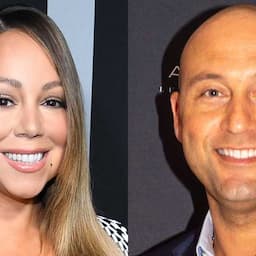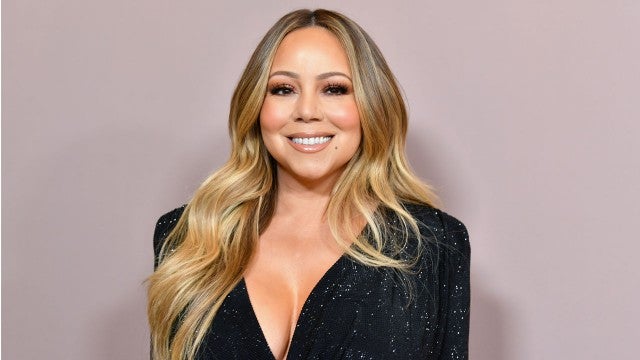Carey discussed growing up in a 'dysfunctional' household and dealing with fear, racism and jealousy from her opera singer mom.
Mariah Carey is opening up further about her traumatic childhood, which she claims involved growing up in a “dysfunctional” household and dealing with fear, racism, and jealousy from her mom, Patricia Carey. The songstress discussed the struggles of her younger years, some which still haunt her, during an interview with CBS This Morning on Monday.
“There was a lot of unrest in my household and I had difficulty with having come from such a dysfunctional family,” Carey, 50, said about overcoming the past. “I needed to heal myself and heal that inner child that I tried to keep alive through all of the dysfunction and mess.”
Part of that dysfunction is chronicled in Carey’s new memoir, The Meaning of Mariah Carey, in which she shares how her mom -- an opera singer who attended The Julliard School -- introduced her to music, but displayed jealousy when it came to Carey’s own career. At one point, Carey claims Patricia told her she “should only hope” she could be “half the singer” Patricia was.
The declaration has stayed with the five-time GRAMMY winner and shaped how she parents her own children, 9-year-old twins, Moroccan and Monroe, whom she shares with her ex-husband, Nick Cannon.
“It definitely had an effect on me,” Carey said. “I don’t even know that she would even remember that. That one statement did live with me for the rest of my life though, so you have to be so careful what you say. So, with my kids, I really try to acknowledge their talent and acknowledge when they draw a picture for me or sing or dance or anything they do. I want them to know it’s also all about them and their happiness.”
“For me, it’s very important that the kids always feel safe and feel seen and heard and that they know that they are loved unconditionally and that no matter what, I’ll be there for them,” Carey added, about wanting to be a different kind of mother than Patricia. “That’s very important to me because growing up and being alone in the house or in these dangerous situations was traumatizing.”
One traumatizing situation from her childhood involved heading to a sleepover in the Hamptons, where she said she was tormented by so-called friends. “They got me in a room, cornered me and started using the N-word over and over and over,” Carey shared.
“I didn’t feel accepted in anyone’s particular world,” added Carey, who grew up biracial in a predominantly white neighborhood.
Carey said she expressed her struggle to fit in and feeling “ambiguous without a sense of belonging” in her song, “Outside,” a favorite track from her extensive catalogue.
She also noted that her first husband, Tommy Mottola, made her feel protected and believed in her, however, the “power dynamics” in their relationship were not healthy. “It’s ironic -- my voice was being heard by millions of people on a label he controlled, but my actual voice as a woman, as a human being, was shushed and not encouraged,” she shared. “If I hadn’t emerged from that, I don’t know what I would be.”
The two divorced in 1998 and Carey was married to Cannon from 2008 to 2016. She indicated she held little hope of marrying again. “I’m definitely open to love. I just don’t know about the marriage part of it. I mean, how many times can someone get married?" she said with a laugh.
In other revelations, Carey took to social media on Monday to share an excerpt from her book, in which she shared how she secretly recorded alt-rock songs while making her 1995 album, Daydream, which turns 25 on Saturday.
“Fun fact: I did an alternative album while I was making Daydream 👀 Just for laughs, but it got me through some dark days,” she tweeted. “Here's a little of what I wrote about it in #TheMeaningOfMariahCarey 🤟 S/O to my friend Clarissa who performs the lead w/ me as a hidden layer #Chick #TMOMC.”
In the excerpt, Carey explained how she was inspired by “breezy-grunge, punk-light white singers who were popular at the time.”
“You know the ones who seemed so carefree with their feelings and their image,” she wrote in her book. “They could be angry, angsty, and messy, with old shoes, wrinkled slips, and unruly eyebrows, while every move I made was so calculated and manicured.”
“I wanted to break free, let loose and express my misery -- but I also wanted to laugh,” she continued. “I totally looked forward to doing my alter-ego band sessions after Daydream each night.”
See more on Carey below.
RELATED CONTENT:
